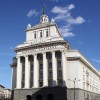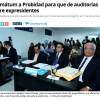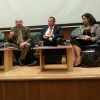14 December 2015 marks ten years since the landmark UN Convention against Corruption (UNCAC) came into force. UNCAC represented the first truly international consensus on the importance of tackling corruption at all levels and it explicitly identifies the important role that civil society plays in holding governments to account. To make this happen, UNCAC recognises […]

The UN Convention against Corruption & civil society: Taking stock after ten years

Five ways to make measurable progress in returning stolen assets in the MENA region
Representatives of Transparency International from seven chapters and partner organisations from the Middle East and North Africa (MENA) region and the Secretariat have been invited by the Tunisian government to take part in the fourth Arab Forum on Asset Recovery (AFAR4) taking place in Hammamet, Tunisia this week. This is an important opportunity for us to […]

Bulgarian politics: how to ensure a referendum fails
On Sunday, 25 October 2015, telephones started ringing at 7 am at the offices of Transparency International Bulgaria (TI Bulgaria). A team of eight colleagues was taking calls from concerned citizens. Another two colleagues with legal expertise started preparing complaints about voting irregularities. Welcome to election day, Bulgarian style. 6.8 million Bulgarians have the opportunity […]
The first step toward creating Slovenia’s legislative footprint
The term “legislative footprint” has become a popular new concept surrounding transparency of the legislative process and supervision of lobbying in public decision-making. But the world has not yet seen a comprehensive, real life, IT-supported legislative footprint in practice. In the beginning of 2015, Transparency International Slovenia launched an innovative project with a vision to combine […]

Anti-corruption reform in Ukraine: going round in circles
Today civil activists, politicians and anti-corruption experts from around the world will meet in Kiev to assess Ukraine’s progress in fight against corruption and what more needs to be done. I won’t be one of the cheerleaders. Unfortunately, in the two years since what we call the Revolution of Dignity, corruption is still a key […]

When transparency rules
What is the real power of “access to information”? Recently in El Salvador the authorities confirmed that citizens have the right to ask for information on the assets of public officials. What happened next is a powerful contribution to the debate around the effectiveness of transparency tools for accountability and citizen mobilisation. Since the ruling […]

Why did Transparency International visit Jordan?
We understand that The Middle East and North Africa finds itself in a very complex situation with major challenges to its stability, security and development. In that context we articulate four key messages to improve the governance indicators for Jordan. These messages are addressed to the government, the civil society organisations and the private sector. […]

Brasil necesita garantizar la protección de los denunciantes de corrupción
Marcia Reis es activista de la red Amarribo Brasil, socio de Transparency International (TI) en Brasil, quien fue arrestada por denunciar corrupción. Desafortunadamente, en este país quienes denuncian corrupción son considerados traidores, y de manera muy frecuente, son víctimas de amenazas y persecuciones. “Cuando un activista denuncia pasa a ser perseguido por quien es denunciado”. […]

Brazil needs effective protection for witnesses and victims of corruption
Marcia Reis is an activist from the network Amarribo Brasil, Transparency International’s partner in Brazil, who went to jail when she spoke out against corruption. Unfortunately, in Brazil, all too often whistleblowers are considered traitors and are victims of threats and persecutions. “When an activist reports corruption or irregularities they are chased by those they are […]

Civil society’s role in the fight against corruption
The United Nations Convention against Corruption (UNCAC) provides the legal framework that countries use to fight corruption. It dates from 2003 and every two years there is a Conference of States Parties where the signatories — there are now 177 — meet to discuss UNCAC implementation. For the first time at this year’s meeting in St. Petersburg, Russia […]
- State Capture in South Africa 14 February 2017
-
 What’s next for Ukraine?
16 December 2016
What’s next for Ukraine?
16 December 2016
-
 Cleaning up sport: conflicts of interest at the top
9 December 2016
Cleaning up sport: conflicts of interest at the top
9 December 2016
-
 OGP: France must do more to tackle corruption
9 December 2016
OGP: France must do more to tackle corruption
9 December 2016
-
 Pharma companies in Slovakia: Uncovering conflicts of interest
9 December 2016
Pharma companies in Slovakia: Uncovering conflicts of interest
9 December 2016
-
Nokubonga Ndima: Young people can make a change for a better future...
-
Benjamin M: Very good article! Congrats!...
-
arun kottur: In India sports minister was involved decades are ...
-
Ekonomi: Very beneficial article. Thank you very much. htt...
-
ksweeney1: I do not agree that https://apex.aero/2016/09/22/g...
Search
Categories
Latest news from Transparency International
No items, feed is empty.

 Connect with us on Facebook
Connect with us on Facebook Follow us on Twitter
Follow us on Twitter